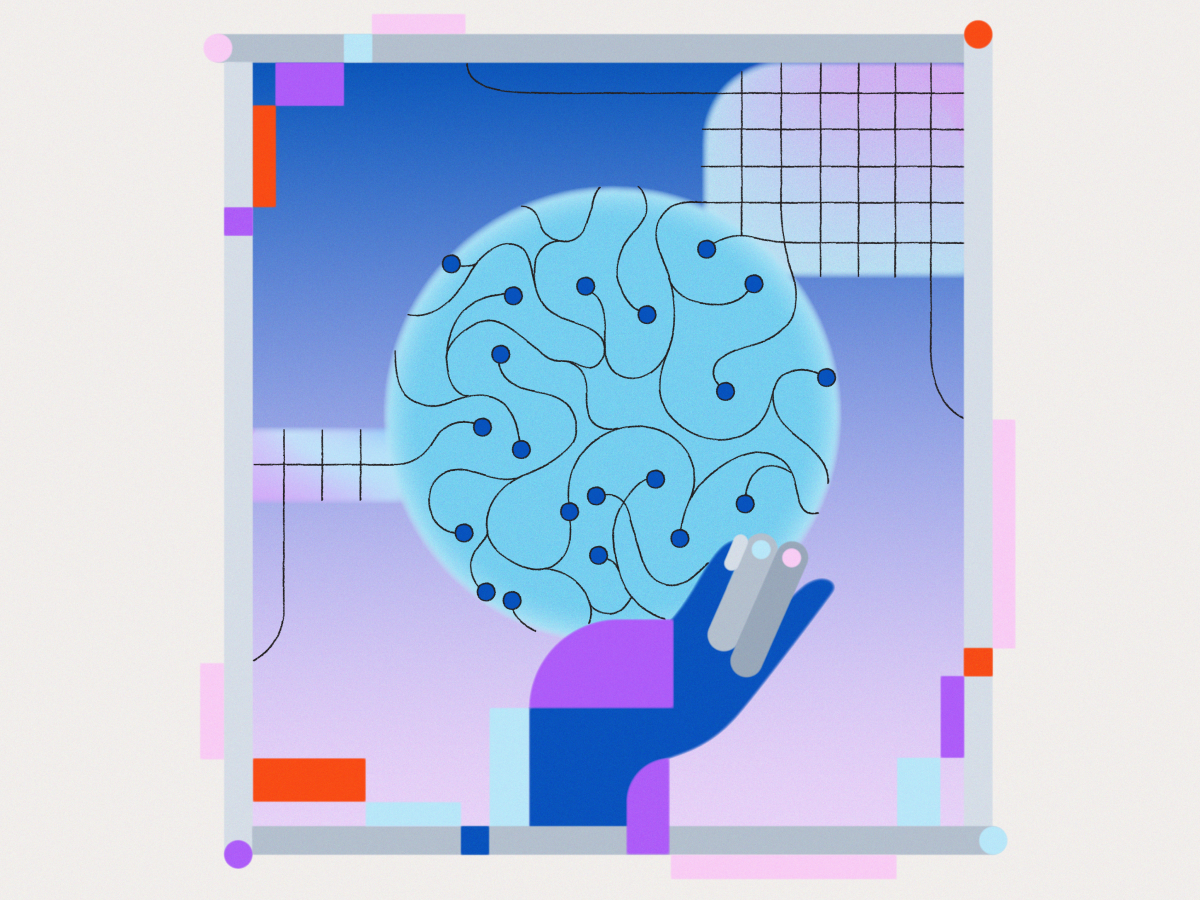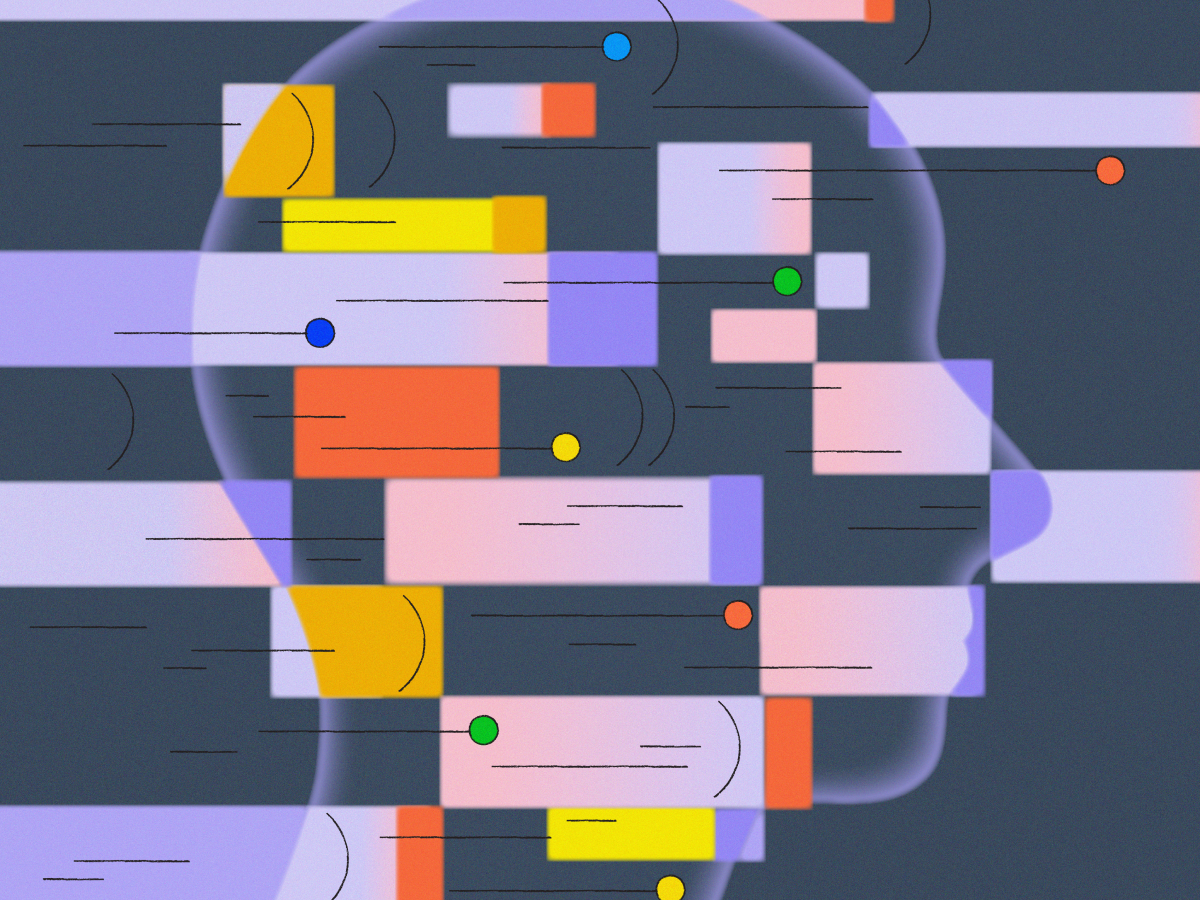What's new
What's new
Create with AI on AWS
Transform customer experiences, enhance productivity, and accelerate growth with artificial intelligence (AI) on AWS, leveraging more than 25 years of AI experience across Amazon. From developers and data scientists to business professionals and students, we make AI accessible to everyone with the most comprehensive set of AI services, tools, and resources.
With AI on AWS, you can:
- Accelerate software development and business operations with Amazon Q
- Develop generative AI applications securely and responsibly for your use case with Amazon Bedrock
- Build, train, and deploy models at scale with Amazon SageMaker
- Get the most performant, low-cost AI infrastructure
- Fuel AI innovation with a strong data foundation

What is AI?
Artificial Intellignece (AI) is a transformative technology that enables machines to perform human-like problem-solving tasks. From recognizing images and generating creative content to making data-driven predictions, AI tech empowers businesses to make smarter decisions at scale.
In today’s digital landscape, organizations generate vast amounts of data from sensors, user interactions, and system logs. Data can be harnessed using AI to streamline operations—automating customer support, enhancing marketing strategies, and providing actionable insights through advanced analytics.
With AWS, businesses can seamlessly integrate AI services to accelerate innovation, optimize customer experiences, and solve complex challenges—all while benefiting from AWS' commitment to privacy, security, and responsible AI.

Unlock business potential with AI services and tools
Generative AI
Accelerate generative AI innovation with enterprise-grade security, privacy, and a choice of leading foundation models (FMs). Powered by a data-first approach and purpose-built AI infrastructure, AWS delivers the highest performance while optimizing costs. Organizations of all sizes trust AWS to turn their prototypes and demos into real-world innovation and measurable productivity gains.

AI Services
AWS pretrained AI services provide ready-made intelligence for your applications and workflows. AI services easily integrate with your applications to address common use cases such as personalized recommendations, modernizing your contact center, improving safety and security, and increasing customer engagement.

Machine Learning
Get deeper insights from your data while lowering costs with machine learning (ML). AWS helps you at every stage of your ML adoption journey with the most comprehensive set ML services and purpose-built infrastructure. Amazon SageMaker makes it easy to build, train, and deploy machine learning and foundation models at scale. With SageMaker, data scientists and ML engineers have the flexibility and fine-grain control over infrastructure and tools to pre-train, evaluate, customize, and deploy over 250 FMs for optimized performance, latency, and cost.

AI infrastructure
With the growth of AI comes the increased usage, management, and cost of infrastructure resources. To maximize performance, lower costs, and avoid complexity during the training and deployment of foundation models to production, AWS provides specialized infrastructure that's optimized for your AI use cases.

Data foundation for AI
Only AWS provides the most comprehensive set of data capabilities for an end-to-end data foundation that supports any workload or use case, including gen AI. Quickly and easily connect to and act on all your data with end-to-end data governance that helps your teams move faster with confidence. And with AI built into our data services, AWS makes the complexities of data management easier, so you spend less time managing data and more time getting value out of it.

Building AI responsibly
Artificial intelligence is revolutionizing how we address major societal challenges—from improving healthcare, furthering neurological research, driving climate change solutions, and more. As AI has become increasingly transformative, organizations are tasked with responsibly harnessing this powerful technology, amplifying its benefits while mitigating potential risks. At AWS, we are committed to developing AI responsibly, prioritizing education, science, and our customers. We integrate responsible AI across the entire AI lifecycle using tools like Guardrails for Amazon Bedrock, Amazon SageMaker Clarify, and more, taking a people-centric approach.

AI use cases to benefit your business
Your organization can use AI to improve customer experiences, boost employee productivity, and accelerate process optimization.
Boost productivity
AI empowers knowledge workers by giving them access to critical information instantly and in context. Whether it's healthcare professionals retrieving patient records or airline employees looking up flight data, AI streamlines these tasks, allowing workers to focus on what truly matters. For example, Ryanair, Europe’s largest airline, implemented AI systems to enhance employee productivity and satisfaction, making information retrieval faster and more efficient.

Streamline customer self-service
AI-powered virtual assistants and chatbots are transforming customer interactions by delivering human-like, context-aware conversations. They excel in customer support, virtual assistance, and content generation by offering intelligent, coherent responses to natural language queries. These AI models help create personalized experiences that drive customer satisfaction and operational efficiency. For example, DoorDash, a food delivery and ordering platform, developed a generative AI-powered contact center solution to enhance self-service support for its users and drivers. An AI assistant provides simple and personalized explanations of tax calculations, helping users better understand their tax result and feel assured their taxes were filed correctly.

Automate intelligently
Artificial intelligence introduces a new level of depth and problem-solving ability to digital automation. AI-driven systems can scan and record data, like documents, images, videos and more, across any template, classify information based on various criteria, and even detect errors for seamless processing with minimal human intervention. For example, Smartsheet, a cloud-based work management platform that helps companies plan, manage, and automate processes, used artificial intelligence to automate the process of reviewing product documentation against compliance benchmarks.

Solve complex problems
AI excels at analyzing vast datasets to identify patterns and unlock insights that can solve complex challenges. Industries like manufacturing and healthcare can leverage AI to make data-driven decisions, such as determining optimal maintenance schedules by analyzing machine data and usage reports, leading to significant cost savings. AI can also revolutionize fields like genomic research, helping accelerate breakthroughs in drug discovery and innovation. For example, Exscientia accelerated drug development by 70% and cut costs by 80% by using AI to design medical compounds in the cloud and automated robots to make drug candidates in a lab.

Create new customer experiences
AI helps businesses to deliver personalized, secure, and responsive customer experiences. By combining customer profile data with product or service information, AI provides real-time recommendations and tailored solutions that enhance engagement. Lonely Planet, for instance, utilized AI to generate curated travel itineraries for customers, reducing the time required by 80% while providing personalized travel recommendations at scale.

How AI is transforming industries today
AI technology is revolutionizing industries, driving innovation, automating complex processes, and delivering exceptional user experiences at scale.
How AI works
Artificial intelligence (AI) aims to create human-like machines, ranging from self-driving cars to smart assistants. It uses different strategies, techniques, and advanced technologies to analyze diverse data types, extracting meaningful insights. By identifying patterns and relationships, AI enables intelligent decision-making at scale. These systems learn from vast datasets, continuously improving their performance, mimicking human learning from experience.
Explore the power of AI Technologies
AI offers a broad set of powerful technologies that are transforming industries and unlocking new opportunities for businesses. Here are key AI capabilities you can leverage to innovate and scale your operations.
Image generation
AI transforms simple text descriptions into high-quality, realistic images in seconds. For instance, by inputting a prompt like "a sunset over the mountains," generative AI can instantly produce stunning visuals. This groundbreaking technology is revolutionizing creative industries such as marketing, entertainment, and design, dramatically accelerating the content creation process.

Text generation
AI can generate human-like text, from short-form content like emails to complex reports. Widely adopted across customer support, marketing, and content creation, this technology enhances efficiency and saves valuable time by streamlining the writing process.

Speech generation and recognition
AI-powered speech generation creates natural, human-like speech, while speech recognition enables machines to understand and process spoken words. These technologies are key to delivering seamless, voice-activated experiences through virtual assistants like Alexa, enhancing customer service, smart devices, and accessibility solutions.

Multimodal AI
Multimodal AI integrates text, images, and audio data to provide a more comprehensive understanding of complex content. By recognizing objects, transcribing speech, and interpreting on-screen text all at once, multimodal AI delivers advanced insights in real-time. This capability is crucial for industries leveraging AI for video analysis, autonomous vehicles, and beyond - enabling smarter, faster decision-making and unlocking new possibilities for innovation.

Begin your AI training
Learn the fundamentals by exploring New to AI—our list of short courses curated by role and project. Discover courses like Introduction to Machine Learning – Art of the Possible and AI Practitioner Learning Plan to master fundamental AI & ML concepts. Our courses will guide you through the AI implementation process—from understanding key terminology to exploring common techniques employed at each stage of an AI project.
Generative AI training on AWS includes certifications on topics like:
You can also get hands-on AI experience with our fun, interactive tools like PartyRock to build generative AI apps without any coding skills

